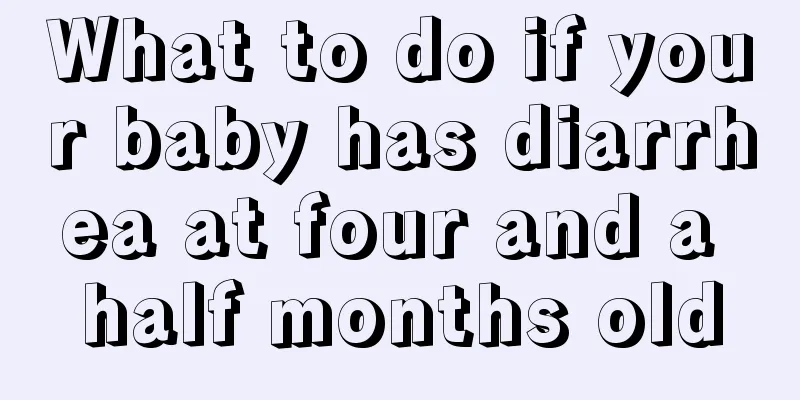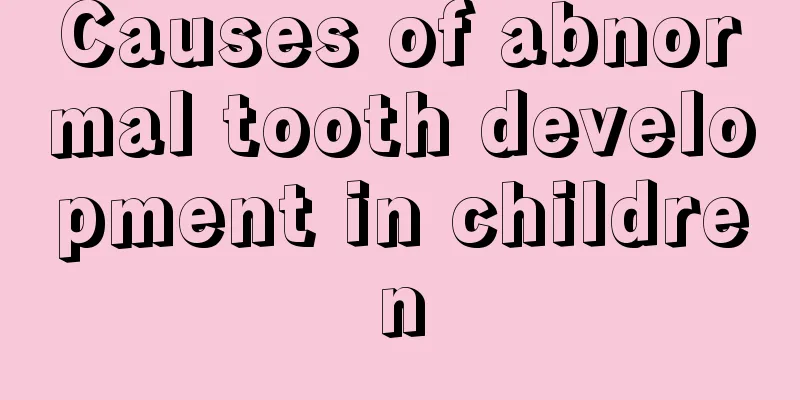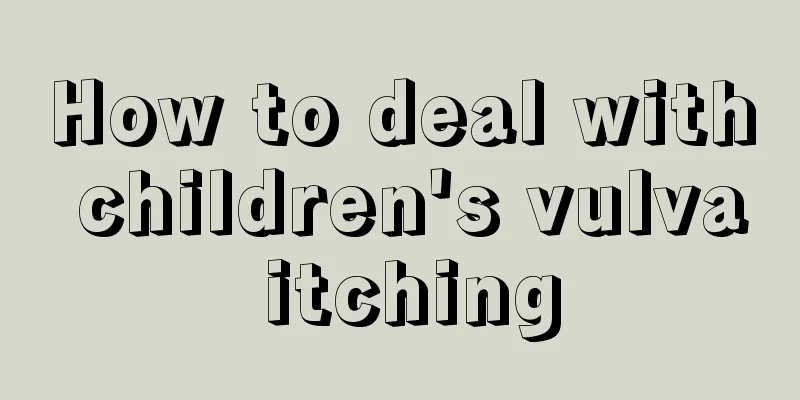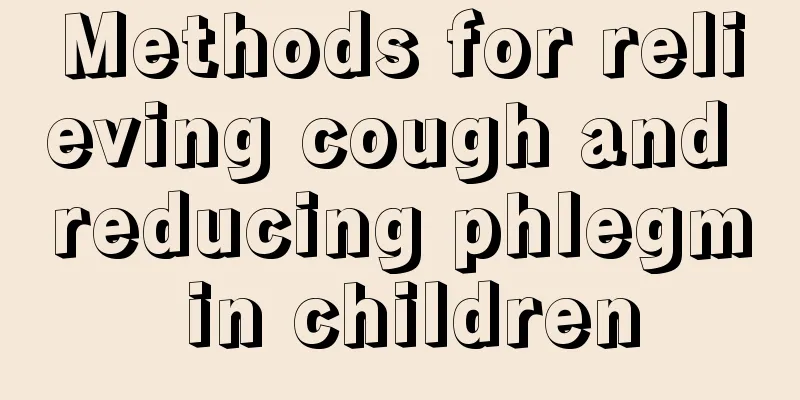What to do if your baby has diarrhea at four and a half months old

|
When a baby over four months old has diarrhea, the first thing to consider should be the child's diet. Some mothers may worry that their children are getting bigger and are afraid that they will not be full, so they feed them hard and let the children eat too much. Since the child's digestive system is not perfect, they cannot digest so much. This situation may cause diarrhea in the child. Of course, there may be other situations. Here I will introduce to you what to do if your baby has diarrhea. ① Adjust and control diet: Give the digestive tract proper rest and reduce its burden. You can stop adding complementary foods and foods that are difficult to digest. Appropriately reduce the amount and frequency of breastfeeding or extend the time between two breastfeedings. ② Breastfeeding mothers should eat a light diet during their baby's diarrhea, drink a bowl of warm water before feeding, and do not stop breastfeeding easily. When feeding, try to let your baby eat the first part of breast milk which is easy to digest, and avoid eating the last part of breast milk which contains more fat. ③ Artificially fed babies should eat skimmed milk powder or boil the milk and then remove the fat from it. Repeat this process of boiling and skimming three times to make skimmed milk. For those with severe diarrhea, reduce the amount of milk and dilute it with water. You can add 1/2 part water or 1/2 part rice soup to 1 part milk. If necessary, you can dilute it with 1 part milk and 1 part water or rice soup. After the baby's diarrhea improves, gradually increase the amount of milk until it is full. ④ Those who have diarrhea and are dehydrated need to replenish the water lost in the body. They can use "oral rehydration", which includes 3.5 grams of salt, namely sodium chloride, 1.5 grams of potassium chloride, 20 grams of glucose, 1.5 grams of sodium bicarbonate, and 1000 ml of warm water, about 4 glasses. The proportion of its ingredients is reasonable, which is conducive to absorption. It should be fed one spoonful at a time with small amounts and multiple times to allow the stomach to absorb it. If your baby has diarrhea, in addition to timely treatment, you should also pay attention to the baby's personal hygiene, wash your hands frequently, change your baby's clothes frequently, and clean and disinfect your baby's toys regularly. During breastfeeding, mothers should also pay attention to their diet and avoid eating raw, cold, or irritating foods to avoid affecting the baby. |
<<: What should I do if my three-month-old baby has a fever of 38.4?
>>: What is the reason for a four-month-old baby to have a fever and diarrhea?
Recommend
Treatment for blisters on children's hands
Many of our children have blisters on their hands...
How to regulate the stomach of a 2-month-old baby
Everyone knows that the baby's physical devel...
How to clean baby's ears
Children will have more ear secretions and like t...
What should I do if my three-month-old baby hiccups?
For mothers, nothing is more important than the h...
Children with recurrent conjunctivitis
Many parents are very troubled by the frequent re...
What causes a heart murmur in a child?
The younger the child, the worse his physical fit...
What should I do if my child has a blocked nose when sleeping?
Children's sleep is a very important part, wh...
Newborn baby's mouth turns purple
Since newborns have just come out into the world ...
Baby has diarrhea and black loose stools
Generally, when children have diarrhea, their sto...
What to do if your baby has scalp hematoma
It is a common condition for babies to have hemat...
Can babies eat peaches?
Peach is a fruit that has the effects of promotin...
What to do if your 2-year-old baby gets heatstroke
When your 2-year-old baby suffers from heatstroke...
What to do if your child has low testosterone
Testosterone-related diseases can affect not only...
What causes hoarseness in babies?
What always accompanies children is crying. After...
DPT vaccine arm swelling
The pertussis vaccine is a relatively common type...









